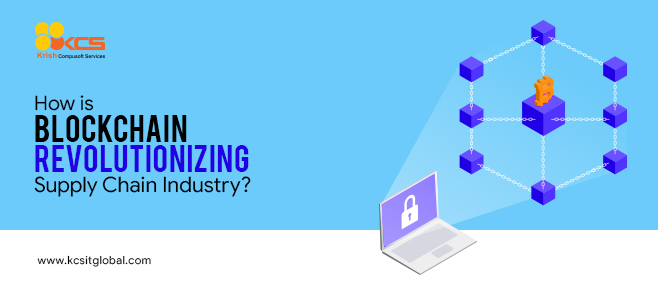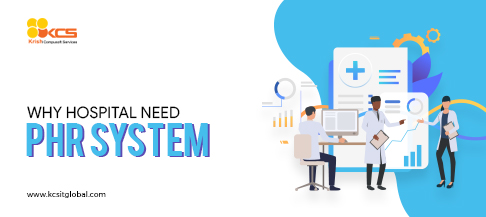
Category: Digital Transformation
How is Blockchain revolutionizing Supply Chain Industry?
In the current scenario, modern supply chains are more complex than it was ever before. Raw materials come from various parts of the world. Hundreds and thousands of suppliers provide components to various customer products. Also, consumers today care more than ever about ethical sourcing and product provenance. In the current economy, supply chain transparency is no longer nice to have. It is a necessity for all consumer-facing companies. It is obvious that achieving transparency is the difficulty. It includes a lot of work in managing, verifying, and auditing the materials and locations where products are manufactured. Fortunately, the latest technologies assure to make supply chain management a lot smoother.
Most of us have read countless articles applauding blockchain as the next big thing in supply chains. The truth is blockchain will play a vital role as a protocol for verifying information. However, it will not revolutionize the supply chain on its own, and shifting to the blockchain will need extra technologies and process changes. The good news is on the contrary to transparent supply chains is huge. When a company knows and understands every aspect of where its products come from, it can decrease risk, assure quality, and market its products more effectively to the modern consumer. This blog will look at the advantages of modern supply chains, how blockchain fits in, and what enterprises require to do implement these changes.
1. Quality control:
The most important function of a supply chain is to assure working products come on store shelves or delivered to customers’ doorsteps. Earlier in the market, supply chains were simple. Your local blacksmith likely knew the miner or the scrap metal from where he got his iron. The cobbler might have known the name of the cow whose leather you are wearing on your feet. These were easy supply chains to handle and craftsmen can verify quality in a person. Running a modern customer goods enterprise is much more complicated and verifying quality is a gigantic risk to the brand. Damaged products result in recalls or damaged reputation. In some circumstances, bad products lead to deaths when an element in a vehicle, pharmaceutical, or food product goes bad. The stakes are high for quality control.
Creating a supply chain more transparent makes it easier to monitor from start to finish. As a result, organizations irregularities more quickly. They could also recognize which products the defect affected. Doing so includes getting buy-in from third party suppliers and needing certification of their processes. While blockchain can help with handling and securing these certifications, it cannot perform the audits for you. You will still need third-party investigators to examine and certify processes.
2. Ethics and Sourcing:
Apart from quality, customers extensively need to know about the working conditions and living wages paid to factory workers. One famous example of a vague supply chain creating problems was Apple’s iPhone production at Foxconn factories in China. The working situation in the factory was extremely dreadful that employees were rioting and some of them even committed suicide. When the story broke in 2011, Apply had to suffer a humongous PR nightmare, but most importantly customers became more engaged and aware of the supply chain behind the electronics they use.
Since then, the anti-sweatshop movement has grown extremely powerful in western economies. Consumers are now asking for information about products’ provenance and whether they were ethically sourced. Supply chain transparency and examining are the only ways to answer to those tough customer questions. It is true that provenance is not limited to electronics. Several other sectors of the global economy are experiencing similar trends in customer engagement with the supply chain. Possibly, none is more pronounced than the organic and whole food movement. Customers want to be assured their food comes from ethical sources, and they are ready to pay a premium for farm-fresh and organic food items.
This readiness to pay has encouraged several scams and fake labeling companies that promise one thing at the same time delivering another. Using the blockchain can keep businesses from claiming certifications they have not earned. However, it would not stop people from making and issuing new certifications that are counterfeit or useless.
3. Supply chain as a marketing tool:
For instance, Patagonia has developed its complete marketing strategy around being ethical sourced, and several other smaller brands are following suit of great success. Dedicatedly, promoting and sharing your supply chain can transform supply chain management from a risk to an asset. Blockchain can help enterprises prove and validate the claims they make about being ethically sourced. It will also make tougher for organizations that are not ethical to claim that they are, only further increasing the shortage and value of a truly ethical and open supply chain.
Conclusion:
Transparent supply chains are essential because they allow enterprises to handle and monitor risks within their productions. They also lead to higher quality products along with clear and ethical provenance. This kind of transparency is great for a business’s reputation and can even be a powerful marketing tool in the modern economy. Technology blockchain, and otherwise will play an important part in making the supply chain more open and understandable. As we march toward a single source of truth for verifying and certifying the origins of products, our global economy will become more comprehensible and more ethical.
Recent posts
-
Top Trends in Modern Workplace
March 15, 2022
-
Top 4 Microsoft 365 Collaboration tools to Improve Business Productivity
November 29, 2021
-
4 Ways to Get Your Data in the Cloud with Azure Data Migration
November 12, 2021
Articles
-
How Utilities are Adapting to the ‘New Normal’ Post Pandemic in the Realm of Customer Experience (CX)
February 02, 2022
-
How Enterprise Logic Apps Create Business Value for Azure Users
November 15, 2021
-
Accelerate Your Journey To Smart Manufacturing Transformation - The Ecosystem Approach
October 26, 2021










